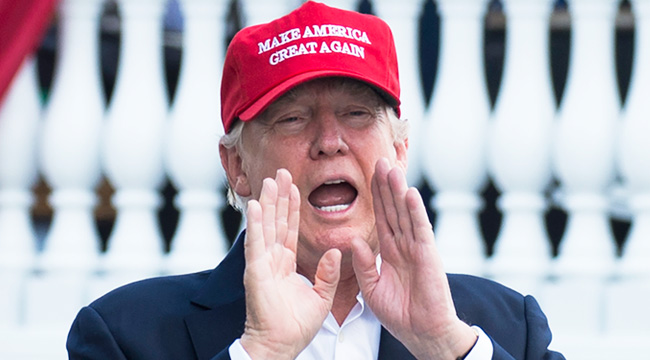
As a general rule, it’s bad form to refer to somebody who acts outrageously as mentally ill, as that tends to stigmatize mental illness and mental health advocates have enough problems in that department. This is especially true of America’s psychiatric and psychoanalytic personnel, who are trained not to diagnose somebody without that person being a patient. So it should tell you just how poorly Donald Trump is acting that a professional association of psychoanalysts has basically decided it’s OK for their members to admit they’re not sure if there’s something genuinely “off” with our current president.
The issue is one of ethics. A trained therapist can’t look at your public actions and decide you’re mentally ill. After all, our public face and actions can be radically different from our private ones, so our public dealings present a very incomplete picture of our psyche. It doesn’t help that back in the 1960s, therapists were dragged into the 1964 election with disastrous results for the profession, hence why the ethics around this are called the “Goldwater Rule.”
To be clear, we’re not talking about the American Psychiatric Association or The American Psychological association here, although enough people have made the assumption that it warranted a clarification. We’re talking about The American Psychoanalytic Association, or APsaA, which has approximately 3,000 members — compare that to the American Psychiatric Association’s 36,000 and the American Psychological Association’s 117,000 members. And while psychoanalysis is still popular, it’s not exactly the cutting edge of psychiatric science, having largely been replaced by cognitive and behavioral therapy. One more thing: despite headlines to the contrary, the association’s members aren’t just going to be running wild with this, either.
Here’s how one member explained it to The Atlantic:
“I personally am comfortable looking at observable behavior and saying, ‘That was an impulsive act.’ That doesn’t trouble me morally. I think it’s kind of silly to not be able to say. I know that I can confidently say, and I did, that the tweet about Mika Brzezinski showed a lack of discipline and self-control.”
So, essentially, a small professional body has decided it’s OK for its members to use slightly chiding language in its professional capacity, but not diagnose the President of the United States without sitting him down and getting into his personal issues. Just who qualifies as controversial, though, thankfully remains something we can all diagnose.
(Via Gizmodo)
